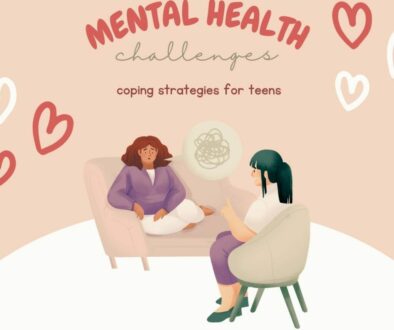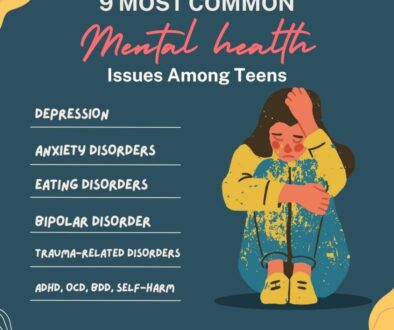OECD’s 2012 PISA Results: The Truth About Academic Successes in the Far East
Every three years, come December time, I get ready for a good chuckling at the ridiculous blame game, and the seemingly, desperately important name and shame game of the OECD’s PISA Results.
The most amusing bit of all is how the media and the country’s politicians fall completely, line-hook-and-sinker and lap up the over-arching, grossly generalised, supposed standard of performances of their education systems, based simply on so-called generalised tests.
The fact is the results of these tests tell so very little of the truth of how they came to be and because everyone at the receiving end of the results can think of and accept no other reasoning, everyone points their finger at the so-called ‘broken’ education system for which a magic reset button is greatly wished for.
The truth is, there are so many other factors that dictate the over-achievement of the Far East in these scores, none of them refer to the education systems.
How do I know all this? Because I AM from the Far East. Having taught and now with a child studying in the education system in the UK, all these differences are so obvious to me. However, for people outside of this experience though, it is likely that they cannot see beyond the blinkered narrowness of the so-called limitations of the education system.
So here’s the Truth about Academic Successes in the Far East
(and when you learn about them, you may want to reconsider whether it’s all so great after all). At the core of the Far East’s achievements is really a cultural difference, that is difficult to explain and even harder to understand.
Familial Expectation of Achievement
Every child in the Far East is raised with the great expectation of academic excellence and success. This is never driven by the education system or even by the school. It is parental expectation at it’s finest.
Perhaps it may be historical where poor families often saw education as a way out of poverty for their children (in China, these go back to Ancient Times with scholastic exams), whatever the reason may be for this inherently high expectation of academic achievement, it is THE most important driving factor for academic excellence.
Now while it may be seem that the schools and education systems are churning out top achievers and excellent students, closer inspection will make it clear that academic achievement of this type is based mainly on the ‘practise makes perfect’ ability of rote learning.
Geoff Barton in his contribution to The Guardian (Forget PISA results, lets concentrate on what really matters to schools) describes it perfectly. Every generation is told, that in order to be considered successful, they need to do better than the generation before.
Discipline and the desire to succeed
The great expectations placed upon the young, by their parents in the Far East are equally matched if not surpassed by the sacrifices of the parent.
Any Western parent who has read this article (Lang Lang: ‘I’d play the piano at 5am’) on the development of Lang Lang (the virtuoso Chinese pianist) talent, would balk and cry off at the great demands and the harshness of his father.
While not every parent dreams of a virtuoso musician in their family, every family in the Far East, goes to great lengths to ensure the possible material best for their child, from extra tutoring, to music lessons.
Education is viewed, not as a right, but a very great privilege
The underlying theme of academic success has always been in the perception of education itself.
Much of the West has now come to view education as a right, with the ability to demand and expect, better grades with less work. The disconnect between better achievements and more consistent, harder work.
In many areas of the world where academic achievement is high, the over arching view is that it is a great privilege to simply be able to obtain an education.
And so you might ask, what good is there left of education in the West?
Perhaps it may surprise you, but there is a large and growing majority of people from the East who are recognising the limitations of such an academic oriented education and as a result, choose to migrate in order to provide and make available to their children an experience different to their own (myself included).
Perhaps it may be that we end up being in a position of an unfair advantage of having and potentially being able to give the best of both worlds to our children. The fact is though, many opportunities available here in the West are simply non-existent in the East.
The ability to speak their minds and voice an opinion
One of the best of these bonuses is the great value that is given to the simple task of being able to speak their minds and voice an opinion.
The majority of children in the Far East are so well and completely educated that they no longer have the confidence to speak their minds. This does not mean that they do not have opinions and ideas, it is simply that they have been taught to ‘follow’ rather than lead, to keep the water calm rather than make waves.
Creativity – time to dream and create
Children in the West perhaps precisely because of the lack of expectation in terms of academic achievement, are seemingly more creative and do better at dreaming up and creating new exciting worlds.
Ultimately though, there is no denying that the Far East performs better at these exams, but the question really should be, should the West look to beat them at this game?
In my opinion and experience, there is definitely room for improvement in raising academic achievement across the board (especially here in the UK). That said, instead of tinkering with educational systems and vilifying teachers, put it to Parents, that their role and influence in the achievement and consequently the lives of their children are immense and immeasurable.
- Increase the co-operation between schools and Parents and encourage better communication.
- Raise expectations throughout simply by telling children that they can be and achieve anything that they want to.
- The deal is, the potential of each and every child is limitless. If one is never told what he can’t do, he would not know it cannot be done.
But perhaps most importantly, for all involved is to take a step back, take a deep breath, peruse the PISA scores, if you must, but take them as they are, as simple set of generalised statistics, that will never be able to tell the whole story, and remember that we are, each and every one of us a unique individual with vast amounts of potential, talents and abilities.
As Einstein once said, “Everybody is a genius. But if you judge a fish by its ability to climb a tree, it will live its whole life believing that it is stupid.”

















OECD PISA: What the Results Fail to Tell You | Colour My Learning
December 3, 2013 @ 11:01 pm
[…] OECD’s 2012 PISA Results: The Truth About Academic Successes in the Far East […]